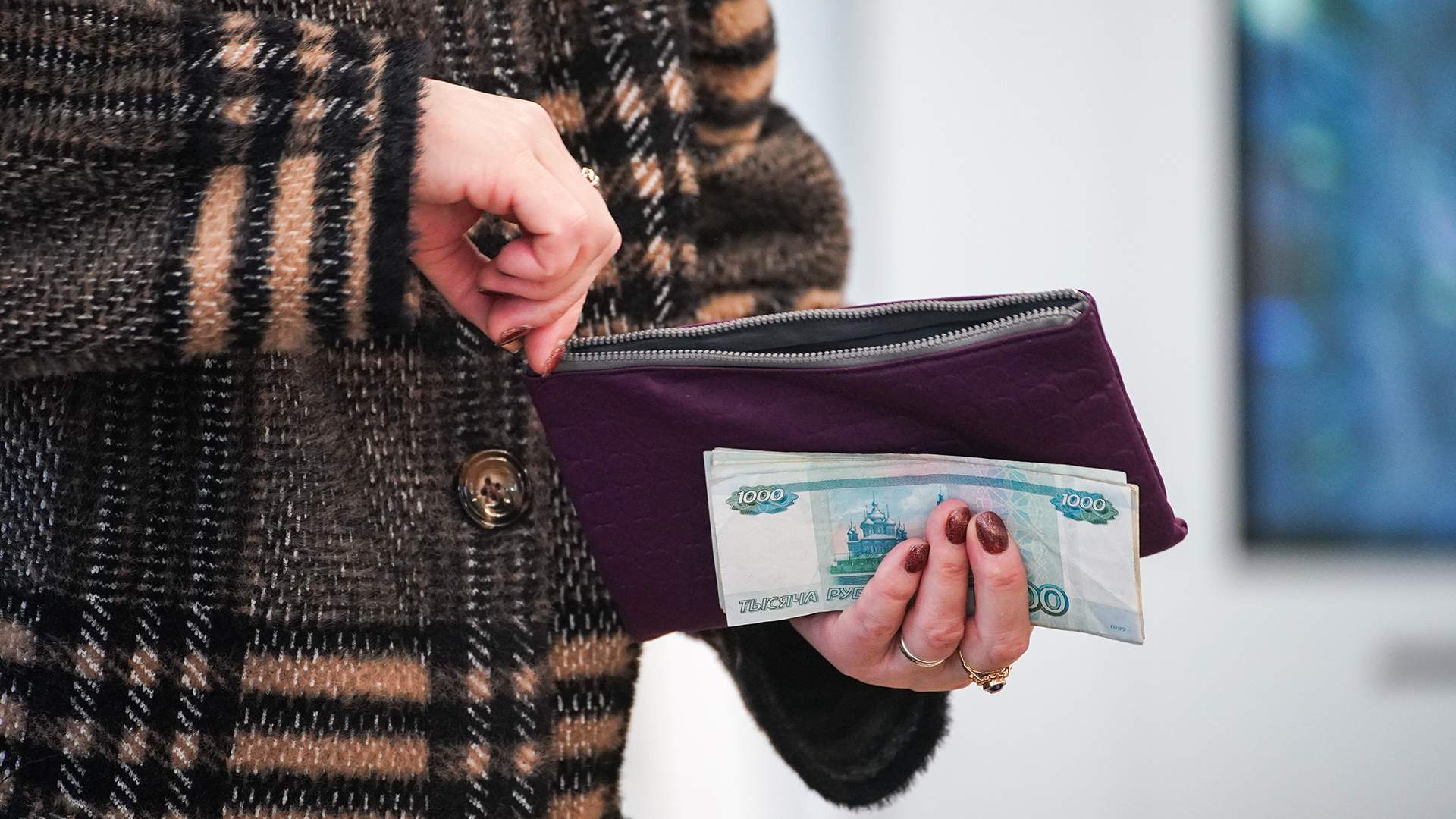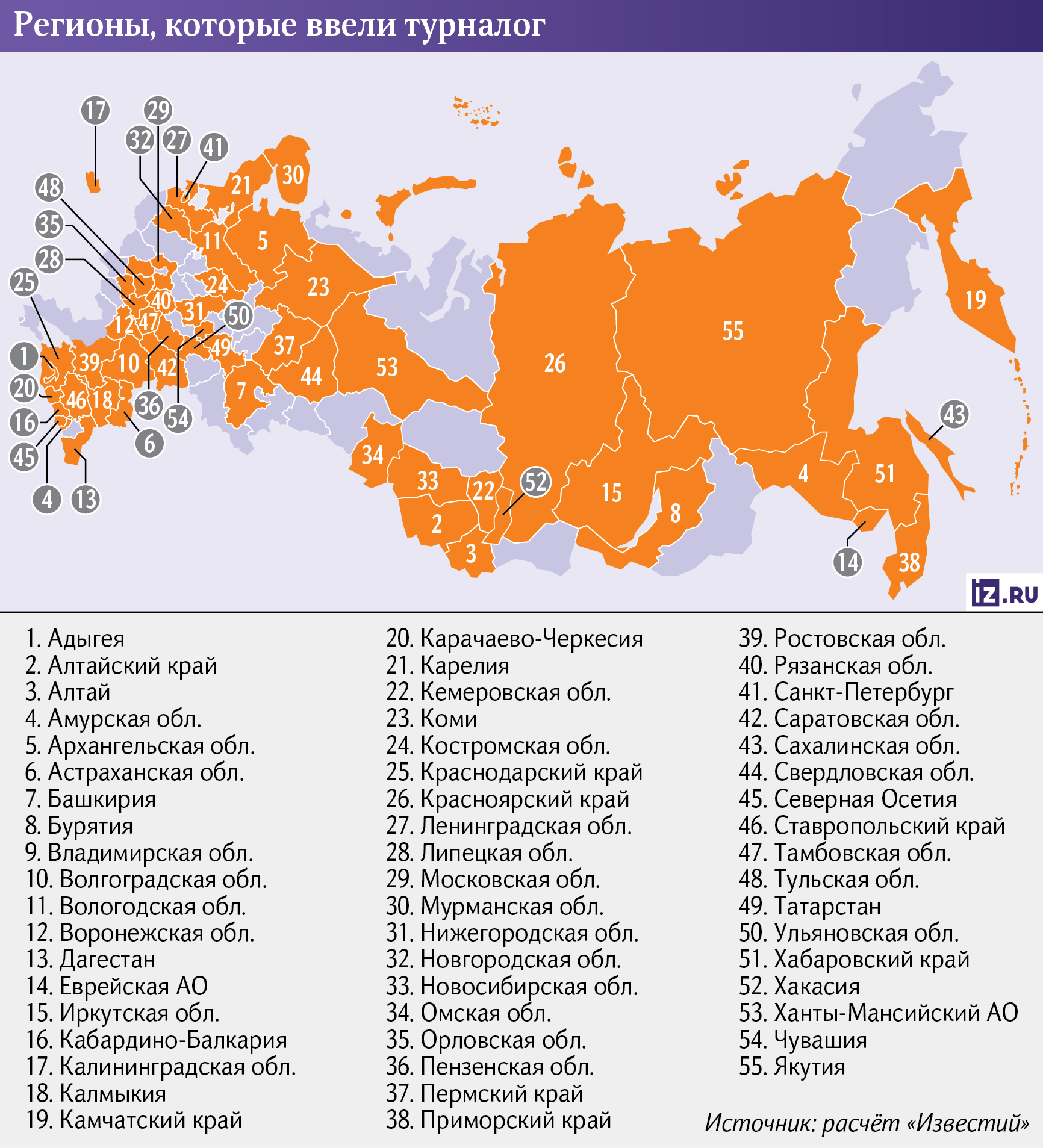Fundraising: tourist tax to be introduced in at least 55 regions

At least 55 regions of Russia will have tourist tax from January 1, 2025, "Izvestia" has calculated. Among them are both popular destinations for Russians (Altai, Kamchatka, Karelia) and not the most popular ones (for example, the Penza and Saratov regions). In some subjects, the fee applies to the entire territory, and in others - only in certain localities. It is paid as a percentage of the cost of temporary residence - no more than 1% in 2025. How the new payment will affect travelers and whether it will help to develop tourist infrastructure - in the material "Izvestia".
Tourist tax in the regions from 2025
On January 1, the tourist tax began to operate in Russian regions. Municipalities of at least 55 subjects decided to introduce it, "Izvestia" counted.
Among the regions that set such a tax on their entire territory are the Altai Republic and the Altai Territory, which have become very popular with tourists in recent years. In summer, people go there for rafting on the Katun river, and in winter - for skiing. There are several large resorts there: "Belokurikha", "Biryuzovaya Katun", "Zavyalovo", "Manzherok", "Teletskoye", "Chemal".
Tourist tax will also start to operate throughout the subject in Karelia - among the attractions there are especially attractive Valaam Island, Kivach Reserve, open-air museum "Kizhi", mountain park "Ruskeala". The fee will also start to operate throughout Kamchatka - tourists go there to relax on the shores of the Pacific Ocean, climb volcanoes, dip in geyser springs and walk in national parks.
TheVologda Oblast, where a tourist tax is also introduced throughout the region, is known for its architectural structures - these are Spaso-Prilutsky, Ferapontov and Kirillo-Belozersky monasteries. Also in the region is the residence of Santa Claus in Veliky Ustyug.
In other subjects it was decided to introduce a new fee only in some localities. For example, in the city of Usolye-Sibirskoye in the Irkutsk region. In it there is a resort "Usolye" - there treat diseases of the musculoskeletal apparatus and respiratory organs. In the region, the levy also appeared in Ust-Ilimsk, on Olkhon and in part of the Irkutsk district, including Bolshoy Goloustny and Listvyanka.
In addition, the tourist tax was introduced by subjects not so popular among travelers - the Republic of Chuvashia, Ulyanovsk, Saratov, Ryazan and Penza regions.

At the same time, some regions decided not to introduce a levy on travelers at all. This has already been reported in the federal city of Sevastopol, Crimea, Mari El, Udmurtia, Tyva, Transbaikal Territory, Kaluga, Magadan, Orenburg regions, as well as in the Chukotka Autonomous District.
As clarified "Izvestia" in the press service of the Ministry of Finance, the tourist tax will be paid not by travelers themselves, but by organizations and individuals who provide temporary accommodation services to travelers. It is calculated as a percentage of the cost of this service, but must be at least 100 rubles per day.
Local authorities will independently determine the tax rate within the limits allowed by law. However, there is an upper threshold, which cannot be exceeded: in 2025 it will be 1%, and by 2029 will increase to 5%. The rate of tourist tax will be differentiated taking into account seasonality - local authorities will be able to set the percentage of the fee on a quarterly basis, Izvestia wrote earlier.
How the tourist tax differs from the resort fee
The mechanism of tourist tax is not new. From 2017 to the end of 2024 in the Altai, Krasnodar and Stavropol Territories, St. Petersburg, the federal territory of "Sirius" there was an experiment on resort tax. Its payers were adults staying in hotels for more than 24 hours, said "Izvestia" in the press service of the Federal Tax Service. The resort tax, unlike the tourist tax, is fixed. In many cases, hotels immediately included it in the cost of accommodation, and tourists did not notice the difference.
In general, the impact of the new tax on the tourist flow will depend on the size of the fee, its purpose and the reaction of travelers to additional costs, said the head of the Department of Tourism and Hospitality Business, Faculty of Economics and Business, Finance University under the Government of the Russian Federation Tatiana Rozanova.
She added: some may refuse to travel to regions with a tourist tax, while other vacationers will not notice a significant difference - in particular, guests of the Krasnodar Territory and other subjects where there was previously a resort tax.
The press service of the Ministry of Sports and Tourism of Mari El told Izvestia that they fear a reduction in tourist flow, so they decided not to introduce the fee. This could have a negative impact on the financial and economic activities of small and medium-sized businesses in this sector.
Itis difficult to decide to introduce the levy in the regions, where the infrastructure for tourism is still weak or where a large share of such services is conducted unofficially, said Viktor Machekhin, head of the Tax Policy Research Laboratory of the Presidential Academy. It can damage the existing business, working honestly, he agrees.
Tatyana Rozanova is sure that the biggest benefit from the tourist tax may be received by large cities and resort centers with a high concentration of tourists - Krasnodar Territory, Altai Republic, St. Petersburg.
- However, a moderate increase in prices is unlikely to have a significant impact, especially if the funds are used to improve infrastructure. Although there are fears that it will scare away budget tourists, - believes Yaroslav Kabakov, Strategy Director of Finam Investment Company.
How much the regions will earn from the tourist tax
Municipalities will allocate funds from the tourist tax to infrastructure for the guests of the settlement, the press service of the Ministry of Economic Development told Izvestia. Such a levy is especially important for small towns, where the number of local residents is significantly less than travelers.
The press service of the Ministry of Tourism of the Altai Republic also told the editorial board that the introduction of the tax will allow additional funds to be channeled into the development of the social sphere and tourist infrastructure.
Thetax will help regions that are developing tourist infrastructure and make them more attractive to travelers, said Tatiana Rozanova from the Financial University under the Government of the Russian Federation. On the other hand, the very introduction of the mechanism will require significant administrative costs to properly organize its collection.
According to Natalia Milchakova, a leading analyst at Freedom Finance Global, the tourist tax could bring the state about 18 billion rubles a year. Revenues from it will go to local budgets, but for the regions such a tax can help to partially cover the deficit of their budgets, she said.
However, other countries have long started to apply the mechanism of tourist tax - in particular, the UAE, Montenegro, the United States, Germany, the Netherlands, Spain, France, said Associate Professor of the basic department of financial control, analysis and audit of the Main Control Department of the Moscow city of Plekhanov Russian Economic University Yulia Kovalenko. These are quite popular destinations for travelers, and the tourist flow has not decreased due to the fees.
In addition, according to Tatiana Rozanova, for example, in Spain the tourist tax helped to finance the restoration of historical sites and improve the tourist infrastructure.
Переведено сервисом «Яндекс Переводчик»








